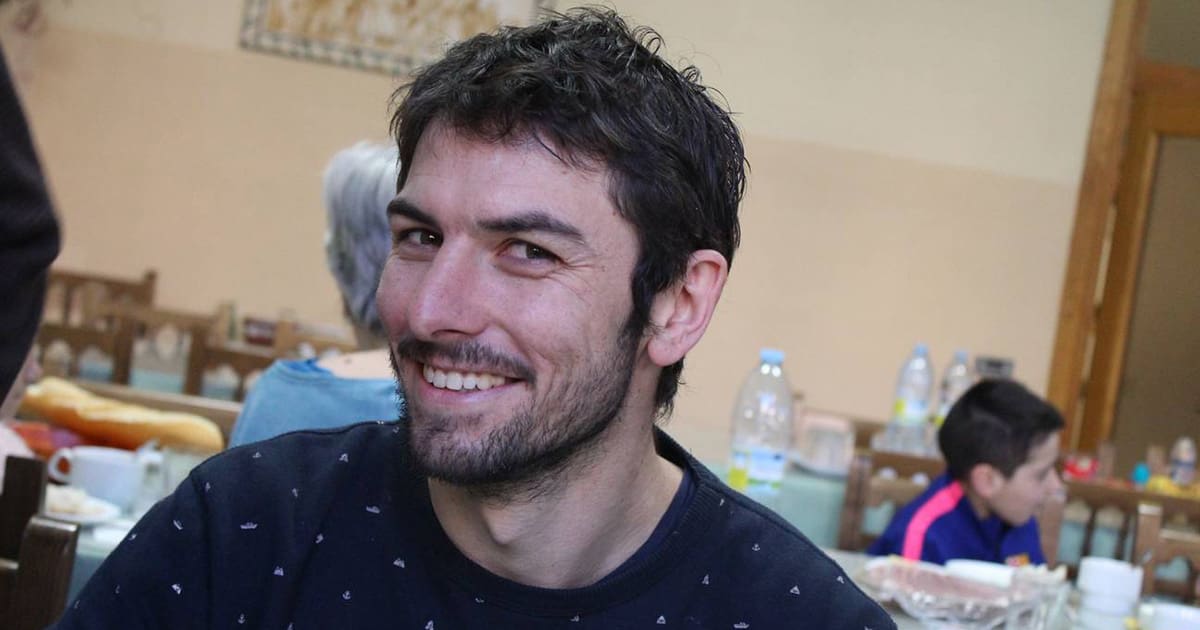Israel Peralta: “The Greatest Strength That Misevi Has Is The People That Are Part of it”
Israel Peralta is the current president of MISEVI (Vincentian Lay Missionaries) in Spain. He defines himself as a multi-dimensional individual …father, husband, teacher, swimmer and missionary. He also feels privileged for being a member of MISEVI and for having had the experience of being a missionary ad gentes in Mozambique. He is currently ministering here in Spain.
Could you tell us something about the current president of MISEVI?
Like everyone else, I am a multi-dimensional person and I feel cared for and loved by God.
I am a missionary in MISEVI, at the present time I am ministering in Spain as a member of MISEVI Coordinating Team.
I am a husband and a father in virtuous family whose members are continually attempting to deepen their relationships.
I’m a teacher of Geography and History in a school run by the Daughters of Charity, where I have the opportunity to to express one of my great passions: education.
I am also a swimmer — I love swimming in open water — I also enjoy reading and traveling. I also have many flaws … I would love to be more committed to the disadvantaged, but I have not found the formula or the time … I view myself as someone who is in a state of constant change, but who, in general, loves to live and dream.
Could you define MISEVI in just three words (you cannot use the words: VINCENTIAN, LAY, MISSIONARIES).
Passion, dignity and community.
How does MISEVI in Spain reconcile being both an NGOD and Missionary Association ?
Being an NGOD and a Missionary Association are two dimensions of our nature. Being a missionary association encompasses the NGOD concept. Missionaries looks at the reality, analyze it and looks for ways to transform it. That process requires a life-long commitment for life, so that the reality changes for the benefit of the most vulnerable. The label of the Non-Governmental Organization for Development is easily applicable to such missionary activity.
What are the strengths of MISEVI?
The primary strength is the men and women who are members of MISEVI: the missionaries who are very “normal” people and yet have made their lives something extraordinary (committed individuals in pursuit of the dignity of the most vulnerable). This “human capital” is a treasure that surpasses every other asset of the Association.
Although it sounds paradoxical, another of its strengths is its weakness: we are a small organization and we are all volunteers and we have limited resources. That forces us to be creative and bold in our thinking and in the way that we minister. We like to believe that we are in a permanent state of growth.
Another strength is our nature, a missionary association composed solely of lay people. We are one of those rare Church organization that relies on the gifts of the laity, especially on their gift of leadership.
MISEVI is a relatively young NGOD, but what are the most urgent challenges it is currently facing?
At this moment we need more people willing to live as missionaries ad gentes for longer periods of time. Our presence in the most impoverished countries requires long-term commitment (two years at the very least).
What would be a way to confront that challenge?
There are several.
First: we have to make ourselves more known to people. There are men and women who are willing to make such a commitment but do not know any organization that can help them in this regard.
Second: there is a need to accompany the people who come to us with the intention of being missionaries. Such a process will help individuals discover their abilities and ultimately lead them to make a commitment (without being paralyzed by fear or some form of insecurity).
Third: praying that God will continue to call many people to serve as missionaries and that individuals will continue to respond to God’s call.
Lastly, in your personal life, as a teacher, as a father, as a missionary, what has MISEVI contributed to you and what does it bring to you?
Uff … they are so many things. Since I was a child I wanted to be a missionary. I was moved by the testimonies I heard from various missionaries. MISEVI made it possible for me to serve in that manner … yes, MISEVI formed me and accompanied me … I became an adult in Mozambique and that experience molded me as a person.
To this day MISEVI is my way of “being” Church; it is my “last name” as a Christian. It has enabled me to enter into some of deep, authentic personal relationships. I am a teacher because of my ministry as a missionary. I wanted to be useful and being a teacher was my first option. My daughters were born when I was president of MISEVI they have been drinking in this way of life from the time of their very first breath. I hope that they will be concerned about the more vulnerable members of society, that they will do good and seek to make justice a an ever-present reality … but I guess they will attain all of that as the result of a day-to-day apprenticeship … hahaha.
In short, being a missionary of Misevi is a way of life that gives meaning to everything I do. I feel privileged.
Source: https://www.misevi.es/








0 Comments